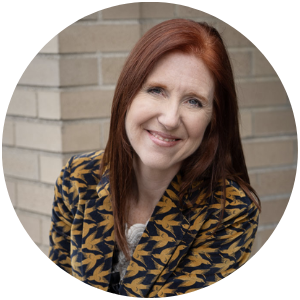
Back by popular demand! This new series addresses the classroom application of mindful writing, in middle school through college.
Mindful writing is the nonjudgmental observation of the ever-changing present to find perspective on internalized critics, better manage our preconceptions, and gain access to ongoing content.
Mindfulness offers new tools for students, including awareness of
- impermanence,
- self-talk,
- verbal emptiness, and
- embodiment,
which leads to
- increased self-confidence and
- increased engagement and connection with others.
Prioritizing the present writing moment lessens fixation on outcome, helps students better appreciate the nuances of prewriting, casts a spotlight on the illusionary audiences that constrain them, and honors their writing bodies and writing emotions.
Each session will provide hands-on practice with mindful writing techniques for the classroom.
This series is not sequential. Feel free to join as many of the four sessions as you are able—whatever works with your schedule.
All are welcome to attend. Events are free for current NCTE members and $10 per session for nonmembers. The final event is free for all but requires registration. Email profdev@ncte.org with any questions.
Please note: NCTE members will be routed to the checkout process upon registering for each event. Please proceed through the checkout—your free registration will be complete when you reach the Order Summary page. For each event, you will receive a Zoom link in two email messages: one day and one hour before the event, respectively.
September 12, 2022—Monkey Mind: Inside us is a river of language that can either benefit writing or cause problems, depending on how mindful we are at the desk. If we are detached and nonjudgmental, that nearly nonstop verbal production yields content for pieces of writing. When we’re mindless, however, that internal talk becomes a monkey mind that leads to problems, including audience demons, reader ghosts, and preconceptions about our writing ability. In this session, we cover these concepts and discuss ways to help students perceive and manage their internal rhetoric.
Registration for this event is closed.
September 19, 2022—Impermanence: The suffering of procrastination and doubt is caused by resisting the impermanence of our writing condition. By not clutching or clinging to writing experiences, not rejecting or sorting (prematurely editing, correcting), we can thrive in a state of groundlessness. In this session, we discuss ways to help students perceive impermanence so they can produce an abundance of writing, utilize change to revise, and understand that their writing abilities and problems are never static, never final, but part of an ongoing state of change.
Registration for this event is closed.
September 26, 2022—Interbeing: Interbeing was Thich Nhat Hanh’s term for the interconnection of all entities and for how the self contains nonself elements. Mindful writing builds self-compassion and honors interbeing, or fellowship, with other people. When we cling to notions of special ability or think of ourselves as static and autonomous, we ignore how writing is part of a constantly changing connectivity. In this session, we’ll cover mindful listening and feedback and other gratitude practices to recognize our interconnection and the intertextuality of writing.
Registration for this event is closed.
October 3, 2022—Downgrade Doubt & Procrastination: This session is designed for middle school to college-aged students. Teachers are welcome to sit in and observe. If you’ve been slogging through a writing task, a powerful transformation can happen just by switching your attention to the present moment. The battle of self-doubt and procrastination that has been raging in you turns into a temple of self-respect and focused calm. In this session, we’ll walk through a series of quick steps at the desk to reduce writing worry through mindfulness so that, within minutes, you’ll be starting or continuing that writing assignment.
Registration for this event is closed.
“I’m delighted to see another NCTE Mindful Writing series is being offered this fall by Alexandria Perry! So often I find a great gulf between myself as a thinker/teacher/scholar and my physical self; similarly my students regularly approach writing as something separate from their lived experiences (which results, as many writing teachers can attest, in uninspired, generic writing). Alex’s series has offered new ways of thinking and practicing writing that bridge these gaps while opening up conversations about what it means to be fully present in our lived experiences—particularly in the moments we spend creating—and why it’s important to bring our holistic selves to the page. I find the mindfulness concepts of impermanence, play, presence, and embodiment support the creative process in ways that quiet the monkey mind, with its countless inner critics. I’m looking forward to attending Alex’s workshops again this fall and connecting with colleagues in a creative, inspiring space!”
Sarah B. Franco, PhD
Assistant Professor of Humanities at New England Institute of Technology
Internationally Certified Teacher of Mindfulness Meditation

ALEXANDRIA PEARY Alexandria Peary (MFA, PhD) serves as New Hampshire Poet Laureate. She is the author of nine books, including Prolific Moment: Theory and Practice of Mindfulness for Writing and Battle of Silicon Valley at Daybreak. Peary is the recipient of a 2020 Academy of American Poets Laureate Fellowship and the Iowa Poetry Prize, and her poetry, nonfiction, and scholarly writing has appeared in many journals, including College Composition and Communication, Rhetoric Review, Yale Review, Gettysburg Review, and New American Writing. One of her indicatives as state poet laureate is Under the Madness Magazine, which publishes writing by teens. A professor at Salem State University, she specializes in mindful writing and presents on the topic, including a 2019 TEDx talk, “How Mindfulness Can Transform the Way You Write”; a 2021 webcast for National Novel Writing Month; and the 2021 keynote for the Secondary School Writing Centers Association Conference. She has served as an NCTE policy analyst and a guest reviewer for College Composition and Communication. Her answers to common questions about mindfulness appear in the Council Chronicle article “What Does Mindfulness Offer Teachers?” as well as at www.prolificmoment.com.
